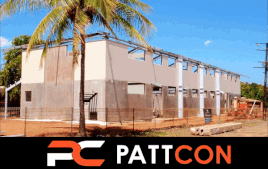The Commonwealth and NT Governments have announced $43 million in funding for mental health and suicide prevention services in the NT that they say will cover the gaps on existing services, which the NT Lived Experience Network has welcomed, while calling for community engagement in the development of NT mental health service delivery plan.
The fresh funding will cover the next five years of mental health services after the NT’s suicide prevention strategic framework launched in 2018 is set to end next year.
The Commonwealth will invest $30.65 million for the expansion of mental health care services “to where they are needed the most”, while the NT Government will chip in $13.25 million.
The governments said new mental health services, particularly for people in the group known as the “missing middle”, and suicide prevention services, will be established with the new funding.
According to Australia’s youth mental health policy think tank, Orygen, the ‘missing middle’ is a term used to describe people whose needs are not met by current mental health services.
The funding is broken down into the following: $15.4 million for two new Head to Health adult mental health satellite clinics and ongoing funding for the Territory’s first centre that opened in January this year; $9.1 million for a new Head to Health kids’ hub; $5.7 million to enhance two Headspace centres to increase access to multidisciplinary youth mental health services; $9.3 million to establish universal aftercare services, so everyone discharged from hospital following a suicide attempt will receive immediate follow up care; $1.3 million for people bereaved or impacted by suicide can access postvention support services; and $3 million to support for perinatal mental health screening.
NT Lived Experience Network spokeswoman Noelene Armstrong said the group was pleased there was broad support to expand and enhance the peer workforce, which at a national policy level, is recommended as part of all mental health services.
“The evidence for peer work demonstrates that it improves the recovery orientation of mental health services and peer workers are an essential element for multi-disciplinary teams,” she said.
“Territorians accessing mental health services have long voiced their desire to receive support from services that include more peer workers and targeted support to develop the emerging peer workforce will be welcome in the NT.
“In order to implement services that truly meet the needs of Territorians, it is imperative for funding bodies to prioritise broad and genuine engagement with individuals and families who have been impacted by mental ill-health, suicidality and related issues.
“Genuine collaboration with the lived experience community is required to maximise the effectiveness of new services using the allocated funding.”
Ms Armstrong said they hoped the engagement with people who had a lived experience with mental illness to develop the recently announced services, could be coupled with a deeper level of community engagement for the development of the NT’s Comprehensive Service Development Plan.
“Deeper engagement with the NT’s lived experience community for the development of the plan will assist NT funding bodies to identify and rectify fragmentation of mental health services and pathways in the NT,” she said.
The new cash comes as the mental health department was particularly impacted by recent staff shortages at the Royal Darwin Hospital, according to the Australian Nursing and Midwifery Federation.
In 2020, the age-standardised suicide rate in the NT was at 20.4 per 100,000 from 19.5 suicide deaths per 100,000 population in 2018, Australian Institute of Health and Welfare data shows.
The new funding builds upon the $50 million already invested into mental health by the Commonwealth in recent years, including $20 million for the new Head to Health Centre in Casuarina, and $30 million for an additional eighteen-bed inpatient unit at Royal Darwin Hospital, the Federal Government said.
Minister for Health and Aged Care, Greg Hunt, said the agreement will ensure Territorians will have access to additional mental health support, including young Australians, who have been impacted by the COVID-19 pandemic.
Assistant Minister to the Prime Minister for Mental Health and Suicide Prevention, David Coleman meanwhile said a key focus of the bilateral agreement would be reducing the heartbreaking suicide rate in Indigenous communities.
“Indigenous Australians die of suicide at more than double the rate of the non-Indigenous population,” Mr Coleman said.
“This is a national tragedy and through this agreement we will be working closing with Aboriginal Community Controlled Health Organisations and Non-Government Organisation service providers across the Territory to ensure relevant services are culturally appropriate.”
In 2020, 3,139 people died by suicide in Australia. The age-standardised suicide rate was 12.1 per 100,000 people. It was the 15th leading cause of death.
A 2007 National Survey of Mental Health and Wellbeing indicated that 2.1 million or 1 in 8 (13 per cent) of Australians aged 16–85 had serious thoughts about taking their own life at some point in their lives.
Australians needing support throughout the COVID-19 pandemic can access the Beyond Blue Coronavirus Wellbeing Support Service any time via telephone at 1800 512 348 or online at coronavirus.beyondblue.org.au
Anyone experiencing distress can also seek immediate advice and support through Lifeline (13 11 14), Kids Helpline (1800 55 1800), or the Government’s digital mental health gateway, Head to Health.
If you are concerned about suicide, living with someone who is considering suicide, or bereaved by suicide, the Suicide Call Back Service is available at 1300 659 467 or www.suicidecallbackservice.org.au
Young Australians needing support can access free services through Kids Helpline (1800 55 1800), their local headspace or online through eheadspace (https://headspace.org.au/eheadspace/).






0 Comments